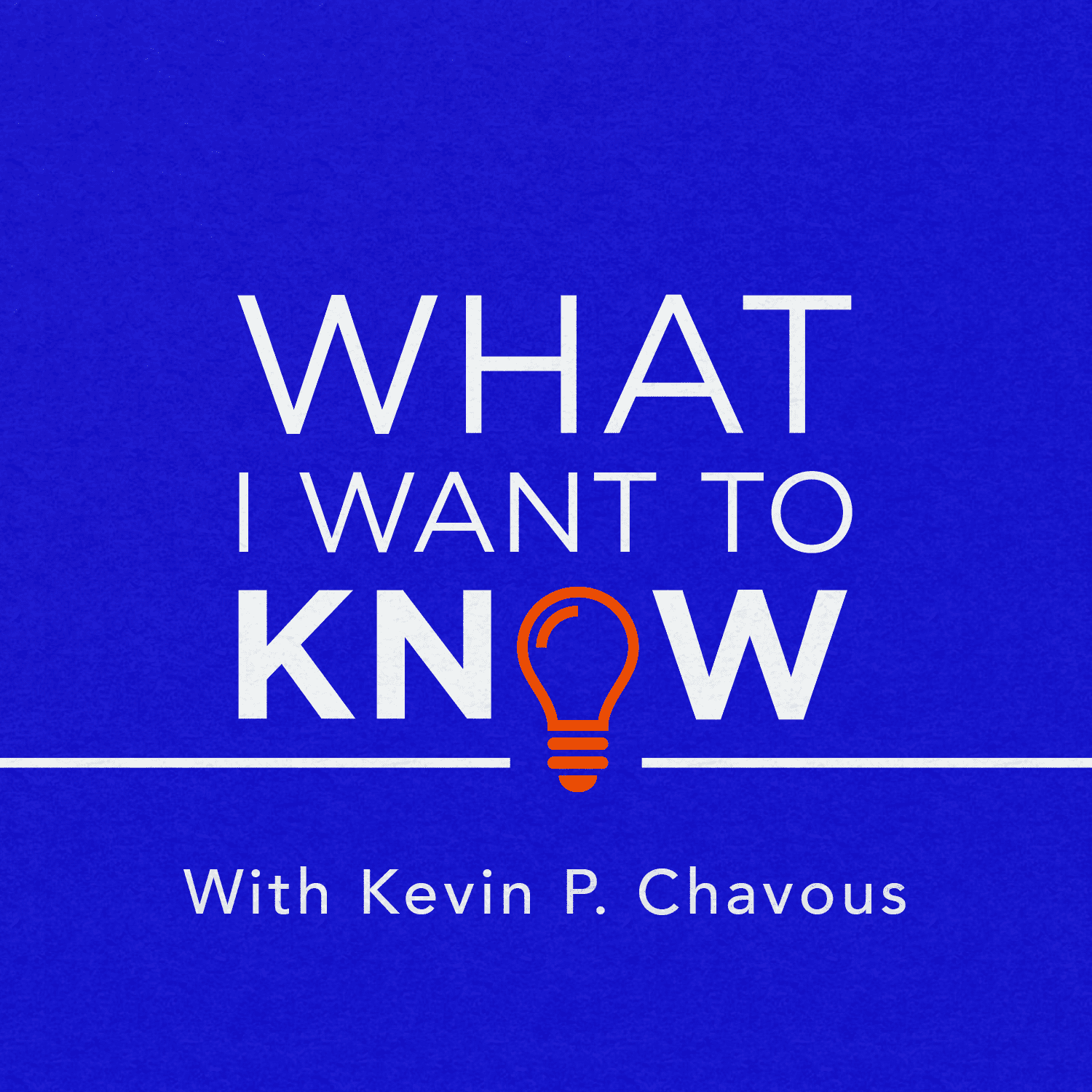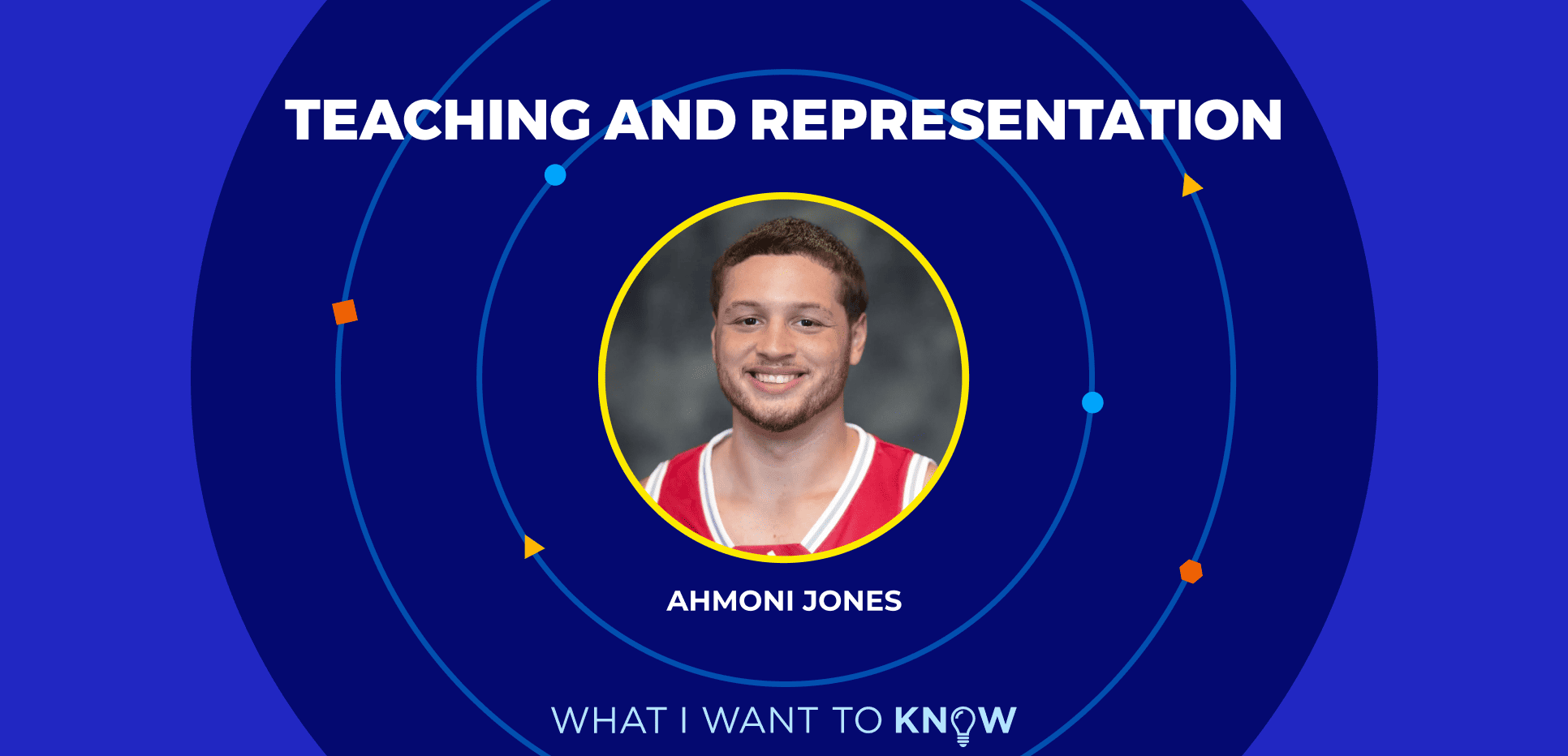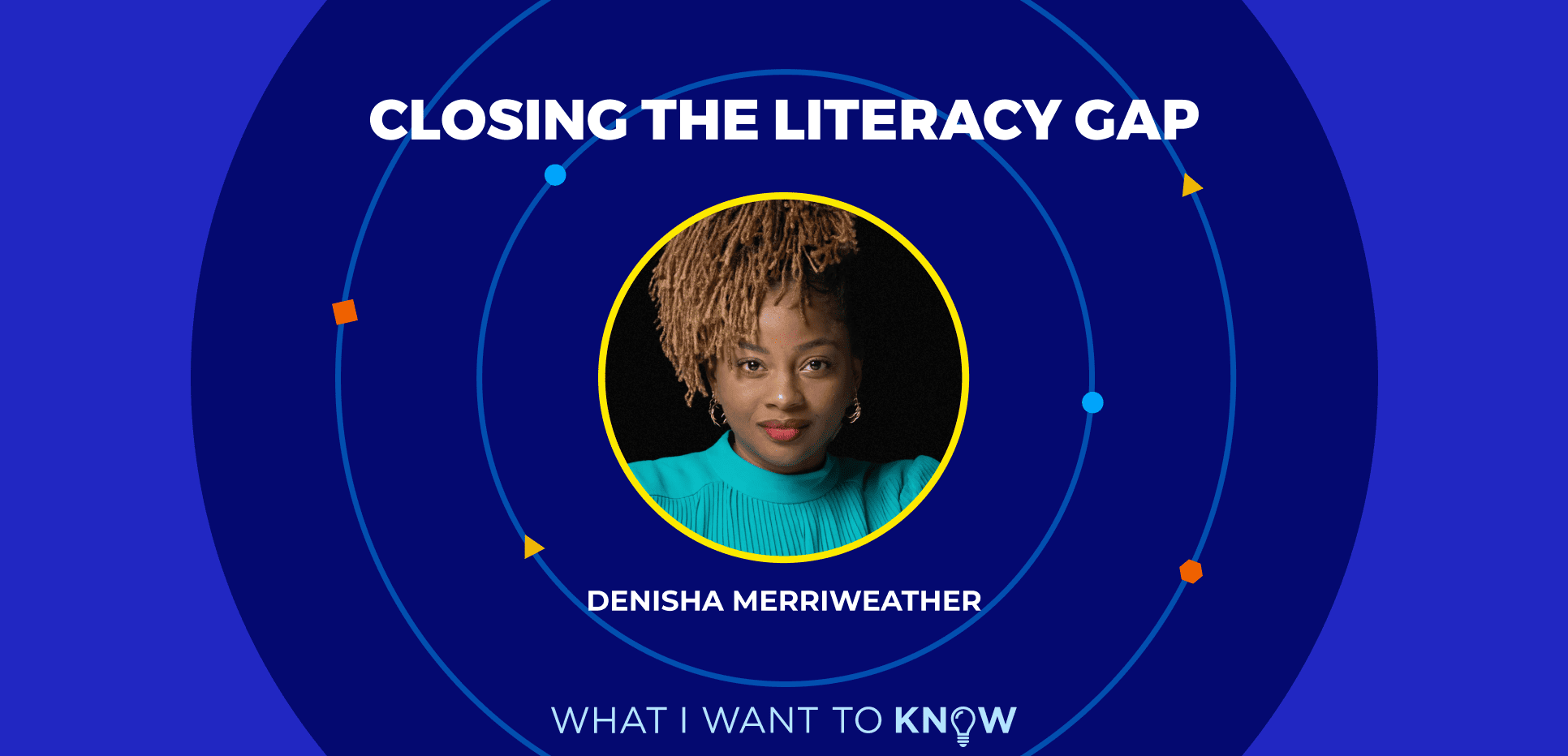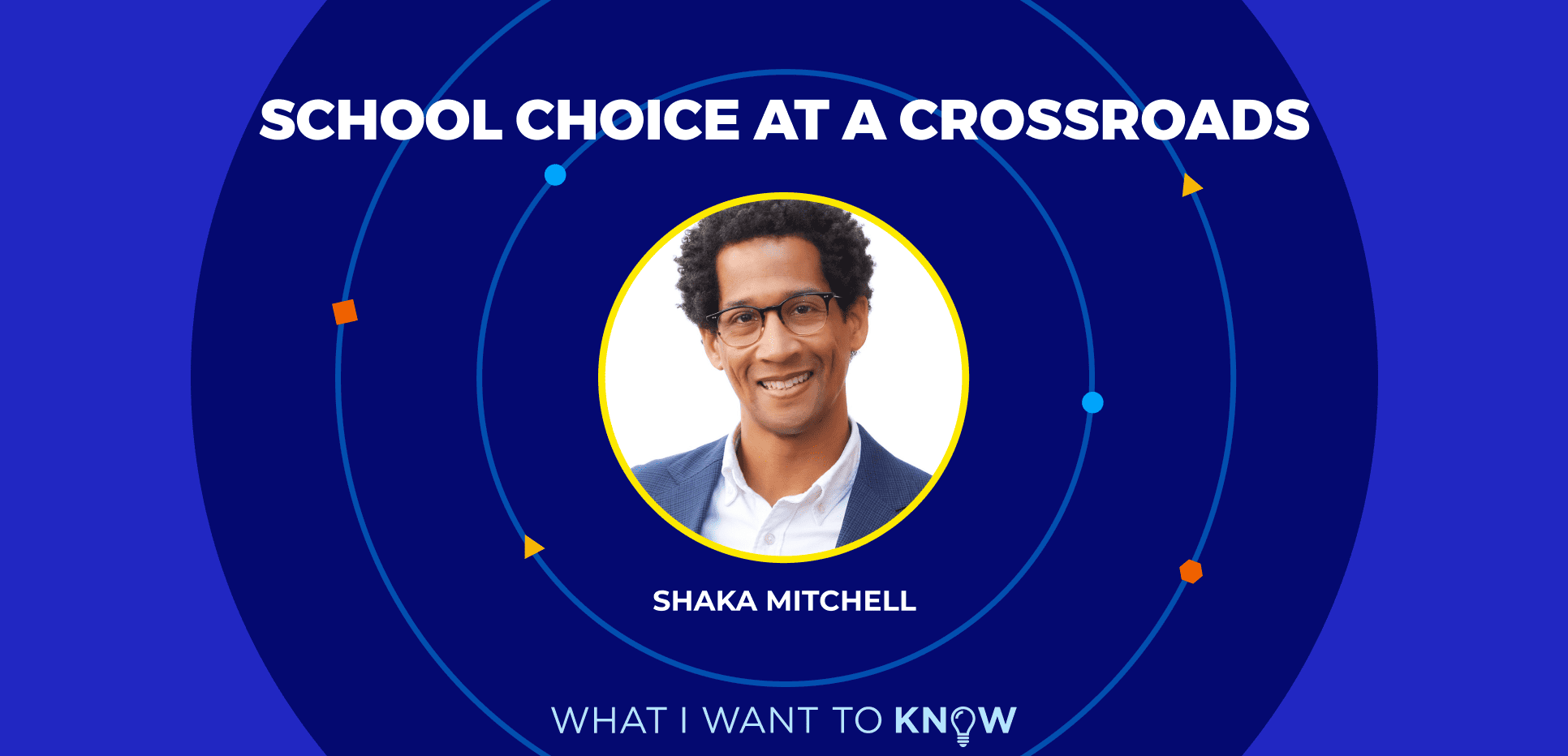In today’s rapidly evolving world, where virtual education is more prominent than ever, we’re witnessing a new generation of students preparing for careers and launching them before they’ve even graduated.
How exactly are virtual classrooms transforming into launchpads for the next generation of entrepreneurs?
In this episode, Alexa Curtis joins Kevin to discuss the link between online education and entrepreneurial achievement and show us just how far today’s students can go.
Listen to the Full Audio
Listen on: Apple Podcast, Spotify
Transcript
Kevin P. Chavous: In today’s rapidly evolving world, where virtual education is more prominent than ever, we’re witnessing a new generation of students who aren’t just preparing for careers, they’re launching them before they’ve even graduated. How exactly are virtual classrooms transforming into launch pads for the next generation of entrepreneurs?
Today, I’m joined by Alexa Curtis, a prime example of youth success in the digital age. From starting a fashion blog at 12 to becoming a mental health advocate, Disney host, and serial entrepreneur, Alexa has turned online opportunities into tangible success. She’s here to discuss the link between online education and entrepreneurial achievement and to show just how far today’s students can go. Alexa, welcome to the show. It’s really good to have you on.
Alexa Curtis: Thank you so much for having me.
Kevin P. Chavous: Look, there’s a lot I want to unpack with you. I followed your career. I followed your serial entrepreneurship efforts, but I was really fascinated with the fact that you always talk about starting at 12, but that was the result of some bullying. Let’s talk about that because the whole notion of bullying has taken on a different dimension these days. But it also could be a motivator. Share a little bit about that experience.
Alexa Curtis: Well, it’s so nice to be asked that question and be able to share it because I assume you have probably a lot of parents who listen to this show and in this day and age, bullying is so prevalent with social media. Back when I started the blog, I was 12. I was in middle school at the time, and I always was kind of the odd one out. I was not confident or whatever at all with how to be an entrepreneur at the time when I started it. So for me, the blog was really simply an outlet to overcome a lot of that bullying and really have a safe space for me to feel like I could be myself.
And so when I started it, this was before influencing and TikTok and Instagram was a thing. I just love to write. And so for any parent or kid who’s watching this, I definitely think if you can find at a younger age something that really fuels your inspiration, that you can hopefully make that into a career.
Kevin P. Chavous: You know, it’s interesting. I talk about bullying because many of the online schools that we run at K12, in fact, indeed, many of the online schools that started were the result of the fact that parents needed an alternative educational environment for their children as a result of the bullying. And, as you said, now it’s gone to a whole different level, but the fact that there are opportunities for kids to learn, grow and thrive is still an important factor. Why a fashion blog? Because you were going through all this, but you decided to land on a blog that really, you know, is somewhat out of the ordinary for a 12-year-old at that time.
Alexa Curtis: Yeah. And you know, one of the reasons I, I mean, the predominant reason that I transferred to online school was because of the bullying and because I was doing so poorly in my public school. And so online school was really the only option for me. So I was so grateful to have found that. But for me, fashion at the time, was really just an outlet. I loved fashion. I mean, I grew up with no money, no connections. So, it wasn’t like I was wearing high-end designer clothing, but I just found it to be something that I think I felt like I could perhaps escape the reality of what I was going through in school, and the lack of friends that I had, and all of my insecurities.
And so at the time when I started it, there was a little bit of a… What’s the right word? There was a community, I’d say, of younger fashion bloggers and these young girls who were doing similar things to me. And while I would go to school and have this insecure, scared personality there, when I would be able to get home and write and talk to these other girls who I thought were also a bit different is where I was able to equally, I think, balance out my fears when I would go to traditional public school prior to starting online school.
Kevin P. Chavous: You know, it’s interesting. And we’ll get off the bullying thing, but I do think it’s important because, as you mentioned, a lot of parents are experiencing this. My youngest son went through that. And you said you used the phrase, a bit different. And I think a bit different is now more normal. Yeah. And I think it needs to be celebrated. And this idea of trying to conform to the crowd, it really is an old tradition kind of reality that just shouldn’t exist. But you know, when you started this blog, did you have any idea of where you wanted to go with it or was just the outlet that worked at the time?
Alexa Curtis: No, I had no idea. I had no expectations. I had no assumptions. It was literally like the way that somebody decided to play volleyball or run track in high school is the way that I decided to pursue that blog. It was, there was no thought process behind it, but it really gave me the creative outlet I think I needed to start on the entrepreneurial journey. But at that age, I mean, I had never even heard of the word entrepreneur. So I think I remember like Oprah and Ellen, but I had no expectation that it would become anything.
Kevin P. Chavous: Let’s talk about the online education experience, because again, when we think of something that’s a bit different, traditional education has been in place for a couple hundred years. Folks are used to the bell schedule, showing up, sitting still, listen to a teacher lecture, and then, you know, have some social interaction during the breaks. But online school is a lot different. Talk about that experience, particularly as you transition. As you move from the traditional environment and getting used to the freedom and difference in an online educational situation.
Alexa Curtis: I’m going to answer that question, but I’m going to start by saying I think a bit of a fun fact that actually I remember so clearly from the day that I decided to transfer to online school, and I had the support of my mom, and I went into the guidance counselor in that public high school that I was at, and I had started the blog at this time, and some people in the school were aware of it. And I remember telling him that I was going to transfer to online school.
And I just remember verbatim him looking at me. And I mean, I think I was 15 or 16. So quite frankly, it was an inappropriate thing to say to a young person, but it was such a traditional, boring mindset. And he just said, if you do this, you’re going to fail. And I just remember I never forgot him saying that to me and I’ve never seen him since, but it just stuck with me.
And so for me, I think because I was so at that age now I’d had the blog for maybe three or four years. So the entrepreneurial side of me, and the CEO, I think that was that budding CEO being in online school really allowed me to embrace that. I remember many times being at home while my mom was at work and having to deal with, you know, what do you do with this time in the middle of the day?
Now, if you finish school sooner than it would when they go, when you go to regular school and you’ve got like gym class and then lunch and then a break, you know, when you’re at home doing it, you’re able to condense it into what really should be the amount of time you spend on school during the day.
And so I had a few years in between moving out and having done online school to really understand that kind of schedule I had to create for myself. But I think because I had the website and this career starting on the side, I personally didn’t struggle with the time management. I think I remember maybe a few times, a few days where I was like, what do I do? Like, I was just like, just a bit bored, with, you know, not having something to do every hour from nine to three. But then I really started to get into a really good routine. I remember I started getting really into going to the gym and then finding other extracurricular activities and being able to start traveling a bit more and having the flexibility to go to fashion week. So once I was in the groove, it really worked for me.
Kevin P. Chavous: You know, it’s interesting. I’m obviously struck by the way that teacher responded to you. But we like to say that online learning is not for everyone, but it should be available to anyone. Because COVID showed us that while some students struggled a little bit in the online environment, a lot of that was based on the fact that teachers, and administrators really weren’t adept at teaching in an online setting. But it also showed that many kids thrived, and it is something that is part of the new learning approach and learning modalities that should be available. Let me ask you this. You went from your fashion blog, you were a Disney host, you’re an entrepreneur. Talk about the online experience and how it helped fuel some of your future success.
Alexa Curtis: Well, it was instrumental. I mean number one for me, I think that being able to have access to the technology while being at school at home and then also being able to just embark on the website or emailing people. Whereas when you’re in a traditional school, right, it’s almost so not acceptable as that guidance counselor kind of proved to do something different or embark outside of that traditional mold. So when you’re able to have access to your website, you know, creative outlets on the internet. It gave me really a head start in ways that I could not have gotten if I was in that public school because, you know, K12 enabled me to do that.
I never had any judgment. I never dealt with competition with other kids because it allows you to creatively find yourself, but then have other activities on the side where you can connect and whatnot with people. And so I find that that was what was really helpful for me was being able to look at this computer and look at the Internet as a tool, not a lifeline, but really a tool to embark on education-wise opportunities as well as career-wise ones.
Kevin P. Chavous: Now, you talked about time management earlier, and one of the concerns that parents have expressed about the online educational experience is that a traditional setting allows for better time management because you’re almost guided and directed by a teacher or school staff as to what you’re supposed to do and when you’re supposed to do it. As you said, though, and it works for many kids, to be able to have the flexibility to balance your time is important. Talk a little bit about that balance, particularly as it relates to balancing your time management to do your work and at the same time fuel your entrepreneurial needs.
Alexa Curtis: Yeah, this is a great question. And I will say that while I went through the process of being on online school, unfortunately, my mom had to work as well as my dad. So I didn’t necessarily have parents who were able to be super helpful active in the schooling side of things. So it really made me quite mature from a young age, and it gave me a lot of flexibility to focus on the website.
That being said, if you’re a parent of a kid who doesn’t have that thing like I had, which was the website, I do think that there needs to be a bit more structure. And perhaps when I say there needs to be, that may just need to be looking in the community, looking at local things where you can get involved, perhaps. Because obviously the goal of online school is not for this young person to do school for an hour a day and then watch TV. There’s like no part of me that ever did that when I was doing online school. And that’s not the goal. The goal is that perhaps if you are a bit of an outside-of-the-box thinker like I am, that this is going to catapult you into more success.
And so if you haven’t yet figured out what that side hustle or motivation is, maybe you don’t have the blog, yeah, right. Then you just need to be strategic with finding things that still get you around other people, that still get you outside of the house. I’m a big advocate for young people just trying things, like, if you try something and you hate it, try something else. But as long as there’s something every day, aside from school, that is consistent, some form of activity or learning something, I embark on this without a teacher standing in front of you saying, this is how to do this every day.
Kevin P. Chavous: I have one more question before I ask you some questions we got from K12 parents. I have some specific questions that I want you to respond to. But in terms of skill development, what are some of the skills that you think are important for students to develop, particularly as they move into this digital age? And, particularly if they want to become entrepreneurs.
Alexa Curtis: My dad is in sales. So growing up, I always heard him doing things like cold calling, and I saw the waters of what it’s like to be rejected and in business. Now, I work with a lot of young people nowadays, and I can say a common theme is that because of the Internet, because of social media, people do not want to pick up the phone. They don’t know how to have proper face-to-face interactions with people because they’re so awkward. Hooked on the phone, yet it’s all text, right?
And so I would say that the adults, you know, anyone 26, 27, right plus, needs to kind of teach this generation how to properly have those skills because they’re not learning it from anyone. So I would say definitely being aware of how to have those conversational skills. And then I would also say definitely, you know, finding that way to utilize the internet without using it as a lifeline.
Instead of scrolling, there’s a term called produce but don’t consume. And I really live by that because I do think 99 percent of what you see on the internet is not good and definitely not good for the development of a young person’s brain. And so it’s almost kind of turning the tables to how can you utilize whatever it is that you may think you’re interested in, copywriting or writing or running, on the internet and produce stuff around it that can elevate your profile, but not let it define you in the sense of a career or a lifeline until, you know, maybe it gets to that point or maybe it doesn’t.
Kevin P. Chavous: Produce, but don’t consume. I love that. I also love the fact, Alexa, that you have your own periodic workshops and sessions where you train students and others on not just how to develop a brand or how to be an entrepreneur, but as you said, how to produce and not consume. So you should be commended for that.
So look, let’s go to some questions. These are directly from K12 parents and they need an expert like you to shed light on these answers. All right. Okay, So the first one’s from Sarah. And she’s in Oregon. She asked how do online schools handle socialization. I’m worried my child won’t make friends.
Alexa Curtis: How do they? Let me think. So I’m trying to also think, you know, when I was in, when I was doing K12, this was back like, I think 2016. So I have to say, I assume perhaps something. Now you see the gray…
Kevin P. Chavous: Beard. That wasn’t too long ago when it comes to me, but that’s all right. All right, go ahead.
Alexa Curtis: I feel so old. I’m like about to turn 27 and I’m like, ah! You know, I would assume there are probably some things that have changed like look back when I was doing school. This podcast wasn’t… you know, K12 was basic. So from back then, I have to be honest, I don’t, I would think it’s quite different now. But the one thing I do remember and that’s, you know, is getting ingrained with some form of a community.
I mean, the fact that this podcast is even accessible, I would assume that there is some form of a network or place where parents can talk and discuss. You know, the one thing that I remember having to do that perhaps now is available for kids who are doing online school. And so what we’re trying to do in our online school is really find that community. And so whether that was again, finding some form of a team or creating some form of a fashion club, that’s something that now nowadays with the access that people do have to the Internet, you know, if I was a student online school, I would probably present like, can we create some form of a club or even some form of a Slack channel for students to interact? Because that, you know, that technology just wasn’t around when I was doing it.
Kevin P. Chavous: Yeah. And you’re right. In fact, K12 does a number of those kind of things. They have a big community day for our schools in California, so they all get together. You know, parents get together to learn and grow with each other on how to help and assist their children. In fact, what’s really interesting, Arizona students got so involved in the science fair that they wanted to pass a rule to limit the number of students that could participate from one school because so many…
Alexa Curtis: I love that.
Kevin P. Chavous: I mean, all the parents and the kids will come together and they were winning the science fair too much. Let’s go to another question. Mike from Texas wonders. Who are the teachers in online schools? Are they as qualified as teachers in traditional schools?
Alexa Curtis: I think so. I mean, I think what I would say is that I remember a lot of people, even when I talk about it now, are like, wow, so you got a GED. And people are shocked when I tell them, I mean, I graduated with a diploma. I did not get a GED from online school. So I think that kind of answers your question right there. Right? And so with online schooling, I also didn’t have that, you know, the way that that guidance counselor really Dissed me in that way. I just never experienced that with an online schooling teacher. You just wouldn’t really face that in my experience. You know, I think that there are unfortunately two types of maybe stereotypes of people who go to online school. You may think this is a kid who maybe has a learning disability and sure, maybe there are kids who have learning disabilities who go to online school and maybe that’s 50%, but perhaps the other 50 percent is someone like me. I didn’t personally have a learning disability, but I did really struggle in school and fitting into that traditional mold. So, I was kind of on the other side of that spectrum. But the schooling, the teachers, the curriculum, it really just gives you more flexibility. There was nothing that dumbed down the education space for me or made you, you know, go down the route of getting a GED because you’re graduating like any other student.
Kevin P. Chavous: Yeah, you’re absolutely right. In fact, every teacher in an online school, all over the country, they have to be state-certified. So you’re right. And you mentioned flexibility. That leads to a question from a parent, Lisa, who’s in Connecticut. She asks how flexible is online school. My child is a competitive athlete with a busy schedule. You talked a little bit about that. The flexibility helps you quite a bit.
Alexa Curtis: The flexibility helped me so much. And I didn’t really do sports, so the flexibility for me was really just my business and being able to pursue that and being able to travel. But honestly, if you are some form of a young person who has, you know, maybe you’re doing something creatively, or maybe you’re really into sports, I mean, online school, really, it’s really for you. The flexibility is there.
I think also the anxiety that I remember having in traditional school with like going to take a test. I always had severe test anxiety. You know, that personal connection as well that you have with a teacher. I mean, I think anyone would be silly to say that like every teacher is amazing and every student is going to relate to that teacher because I just think that’s not true. I had many experiences throughout my early schooling years where I just don’t think the teachers liked me, and it wasn’t necessarily personal, but like they’re human. I’m human, right? Like it’s impossible for a teacher to not have some form of a favorite or prefer certain kids and then ignore certain other ones, et cetera. Right? And so with online schooling, I also didn’t have that, you know, the way that that guidance counselor really dissed me in that way. I just never experienced that with an online schooling teacher. You just wouldn’t really face that in my experience.
Kevin P. Chavous: Yeah. Well, one more question. And really, it speaks to some of the points you made earlier. And this is John from Arizona. This parent asks, Is online school challenging enough? Can students who want to go to college still go to college?
Alexa Curtis: Well, I planned to go to college when I did online school. That was one of the reasons why I ended up doing online school along with the bullying and the blog was that I found high school too hard for me. And apparently the town that I am from and that particular school, it’s on the campus of the University of Connecticut. And so I’ve heard over the years that it is like, for being a public school, it is one of the harder public schools because they really prepare you for college.
Unfortunately, I’m not good at math. I’m not good at science. And so I always had very poor grades aside from English. And so while doing research and then deciding to go to K12 in particular, one of the reasons why is because I thought I was going to be able to go to college still and not have to deal with things like test anxiety and bullying that you get in a traditional school. And I was right. I actually decided not to go to college, but I don’t remember even submitting to colleges and going through the application process and the SATs. I never had one person say, like, we’re not accepting you to this school because you went to online school.
Kevin P. Chavous: Yeah. And that’s a choice you made. And today, skill development and using those skills to further your passion is just as important as going straight through to college. This is my last question, Alexa, and I just am so impressed with your energy and the work you’re doing. And I’m glad that many parents and students and frankly, people who participate in the K12 system around the country are able to hear you. But going back to your education, how it fueled your entrepreneurship. What advice would you give to students who want to start their own businesses while still in school? And you know that reality firsthand.
Alexa Curtis: Well, my first piece of advice would be to find some form of a mentor. When I was starting, I would email a lot of people, but I didn’t realize how important it was to create that sense of a circle early on because you may not think of it when you’re 12, 13, 14. But if you really do decide to take entrepreneurship seriously, those early relationships you create may be the people who end up investing in your first company or being that support system if you embark on this slightly crazy career path that entrepreneurship is. So I’d say to align yourself with some form of a mentor.
And then I would say one thing I like to tell every young person is to email, introduce yourself to 5 or 10 plus people a week. If you looked up the emails I was writing, I remember so clearly any time that I would finish school for the day, I would always just introduce myself to people on emails when I was like 14. And I mean they were grammatically incorrect and just really sloppy emails because I didn’t know what I was doing, but it got me in the door with people in business just by introducing myself. And that’s the way that I even ended up landing my own Disney show was via cold email. So if you can find the confidence to reach out and introduce yourself to people every week, regardless of what you decide to do entrepreneurship or business-wise, you’re just going to set yourself apart from other people.
Kevin P. Chavous: Alexa Curtis, appreciate all that you’re doing. And thank you so much for joining us on the show.
Alexa Curtis: Thank you so much for having me.
Kevin P. Chavous: Thanks for listening to What I Want to Know. Be sure to follow and subscribe to the show on Apple Podcasts, Spotify, or your favorite podcast app. So you can explore other episodes and dive into our discussions on the future of education and write a review of the show. I also encourage you to join the conversation and let me know what you want to know using #WIWTK on social media. That’s hashtag WIWTK. For more information on Stride and online education, visit stridelearning.com. I’m your host, Kevin P. Chavous. Thank you for joining What I Want to Know.
Meet Alexa
Alexa Curtis is a K12 alum and entrepreneur. From starting a fashion blog at 12 to becoming a mental health advocate, Disney host, and serial entrepreneur, Alexa has turned online opportunities into tangible success.







